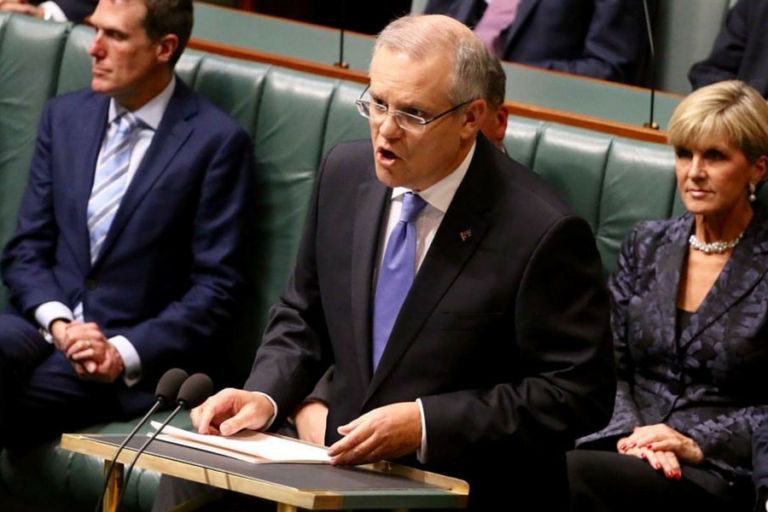Federal Treasurer Scott Morrison has underlined the government’s support for fintech, telling the G20 Conference on digitising finance, financial inclusion, and financial literacy in Germany the potential of financial technology to help shape Australia’s economy going forward.
Morrison said government policies and actions must harness and realise the full potential of fintech by removing barriers to innovation and encourage individuals and businesses to embrace new financial products and services.
“From Australia’s perspective, we see huge benefits — huge opportunities — emerging in this space. On one level, it offers consumers and businesses the chance to benefit from new services and products, and provide greater choice through increased competition and efficiency across all areas of the financial system,” he said.
“And at another level, it opens new doors for startups and small businesses, the backbone of many of our economies, and gives them a fighting chance against larger competitors. In Australia, we are seeing this in two ways, with some startups successfully targeting specific market segments, while others are working with existing players.”
Morrison called this ‘fintegration’, or the integration of fintech in the market.
In particular Morrison highlighted the possibilities that new credit models and access to a wider range of data can entail, from equity crowdfunding to peer-to-peer lending and invoice finance.
He also pointed out the benefits of automation in lowering costs of various services and in turn increasing usage, with robo-advice a key example.
“In Australia, businesses are beginning to integrate robo-advice into the retirement savings system to help people engage and prepare more fully for retirement,” he said.
Morrison also spoke about “monetising digital data”, or creating and capturing the value-add from “the massive amount of data that’s becoming available in a more digital world”.
The focus on data comes at an interesting time, with concerns about an individual’s data and the way it’s being used particularly high as the Centrelink debt recovery issue continues to make headlines.
The agency’s debt recovery program matches Centrelink data with records from the Australian Tax Office. According to the ABC, the program has issued almost 170,000 notifications since July, with thousands incorrectly notified that they owed money. The program is being investigated by the Commonwealth Ombudsman.
Looking into questions around data, the Productivity Commission is set to release a report into data availability and use in March following a 12 month-long public inquiry ordered by Morrison last year.
The inquiry sought to look at the benefits and costs of making public and private datasets more available; examine options for collection, sharing, and release of data; look at ways consumers can use and benefit from access to data, particularly data about themselves; and consider how to preserve individual privacy and control over data use.
Among the recommendations made in the draft report released late last year, the Productivity Commission recommended that individuals should have a “comprehensive right” to access digitally held data about themselves.
This would give the individual a right to continuing shared access with the data holder, to request edits or corrections for reasons of accuracy, and to be informed about the intention to disclose or sell data about them to third parties, among others.
Also recommended individuals having the right to opt out of a data collection process, subject to a few exceptions.
Considering concerns about data and privacy, Morrison said “it’s important that new technologies do not become a victim of fear”.
He said, “Yes, there are undeniable risks in enabling data to become more widely available. But the risk of harm needs to be assessed based on the likelihood and the scale of potential damage. After that happens, risk assessment and mitigation processes should be put in place for the release and sharing of data, as well as collection and storage.”
Individuals aren’t the only ones concerned about data sharing, however, with businesses concerned that under the definition of customer data proposed in the Productivity Commission’s draft report, they will be forced to share data that may affect their commercial interests.
Morrison has been in Europe over the last week meeting with European counterparts on financial innovation and housing affordability.
While in London earlier this week he met with fintech entrepreneurs and experts, discussing the UK’s decision to have banks provide customers with access to their data, and have this data made available to third parties through an API.
Image: Scott Morrison. Source: abc.net.au.




















Trending
Daily startup news and insights, delivered to your inbox.